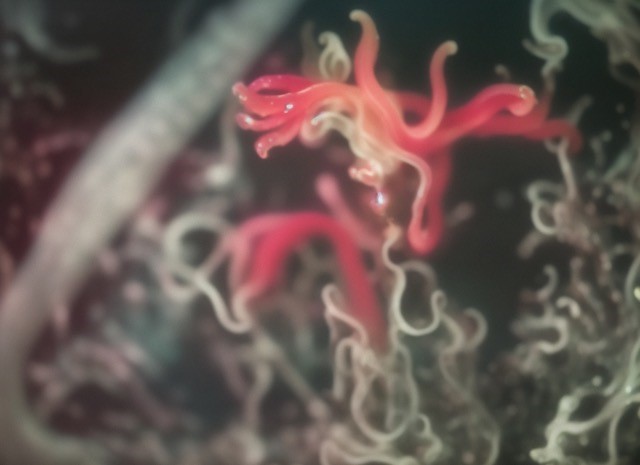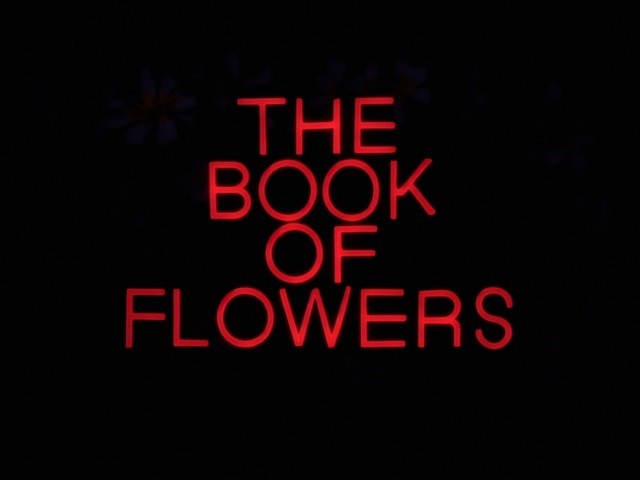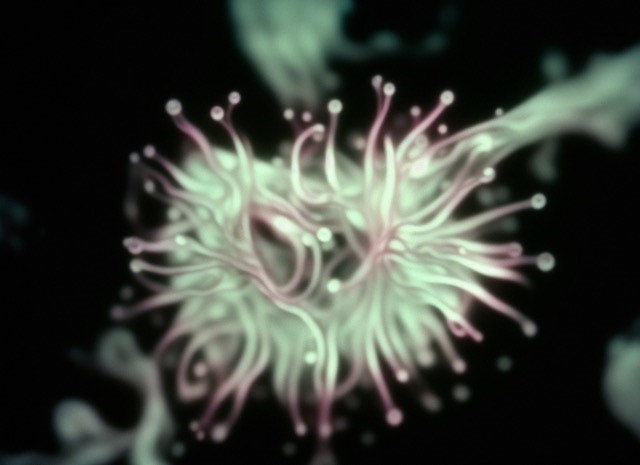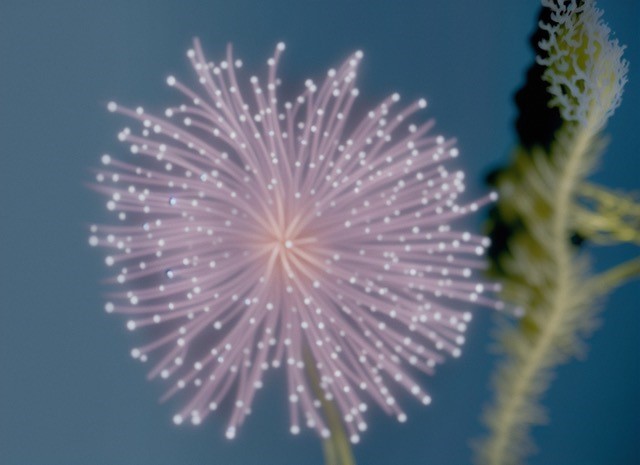15 и 22 юни
17:30, 17:45, 18:00, 18:15, 18:30, 18:45, 19:00, 19:15, 19:30
Хотел Хилтън
зала „Вихрен“
13 - 28 юни
Полски институт
Вход свободен
The Book of Flowers
„The Book of Flowers“ е късометражен научнофантастичен филм, който съчетава анимация, създадена с помощта на изкуствен интелект, с 16-милиметрова предпродукция на филм. Той представя алтернативна история на екологията между хората и растенията, в която цветята и хората са съществували в тясна симбиоза в продължение на хилядолетия.
В своята практика Агнешка Полска използва кинематографично разказване и афективни технологии, за да разгледа постоянно преговаряната връзка между хората и технологиите, като изследва процесите, които взаимно влияят и легитимират тази връзка в езика, историята и съзнанието. Тя се интересува от въпроса за индивидуалната социална отговорност на фона на дезориентацията, предизвикана от технологиите, и идеологиите на технологичния детерминизъм.
Творбите на Polska съчетават исторически изследвания, кинематографично разказване и афективни комуникационни технологии, търсейки нови наративни формати, които съответстват на бързо променящите се изисквания на информационните общества. Според Polska такива формати са налични на пресечната точка между поезията и разказа, изкуството и киното.
Основна част от настоящата й практика и мислене е изграждането на пред история на възникващото глобално кибернетично съзнание. Анимацията „Книгата на цветята“ (2023), посветена на полово обусловения репродуктивен труд, прави още една крачка напред в този процес, тъй като пред историята, изобразена във филма, очевидно е измислена.
Във филма дълбок и очарователен глас на актрисата Тина Грейтрекс води зрителя през съвместната история на човечеството и цветята. Според разказвача, цъфтящите растения са били огромни, а хората са били основните им опрашители. Между видовете е съществувала сложна симбиоза, като и хората, и цветята не са могли да се размножават един без друг. През вековете хората са усвоили технологии, които им позволяват да се размножават без участието на растенията, и са намалили размерите на цветята. Една технология е изиграла особено важна роля в този морално двусмислен процес: технологията на разказването на истории.
Тази фантастична история, довела до съвременното състояние на нещата, се разказва на фона на страстната „Симфония № 5 Токата за орган“ на Шарл-Мари Видор и поредица от динамични анимации на сюрреалистични цветя, често с текстури, наподобяващи животни или машини. Сложен процес на пренаписване на ранни ускорени видеоклипове на растения с инструменти за изкуствен интелект доведе до създаването на материал, който може да бъде описан като намерени кадри – но без да е използван нито един оригинален кадър.
„Ами ако това, което смятаме, че се изисква от хората по природа, е просто история, която сме си разказали за това какво е да си човек и какво е природата? Ами ако това, което мислим, че сме, това, в което вярваме дълбоко в себе си за нашата лоялност към роднините и нашите възприемани нужди за оцеляване, са реакции на история, която сме измислили и си сме разказали, че е написана от нашите гени?“, пише Алексис Полин Гъмбс за Силвия Уинтър. Тази „дискурсивна конструкция на човека“ намира отзвук във филма на Полка, където основната сила и в същото време заплаха за човечеството е да се останеш запленен от собствената си история, прошепната в човешкото ухо от технологичното уста. „Книгата на цветята“, която сама по себе си представлява научнофантастична история, е замислена като „мисловен експеримент“ в потапяне и дисоциация.




